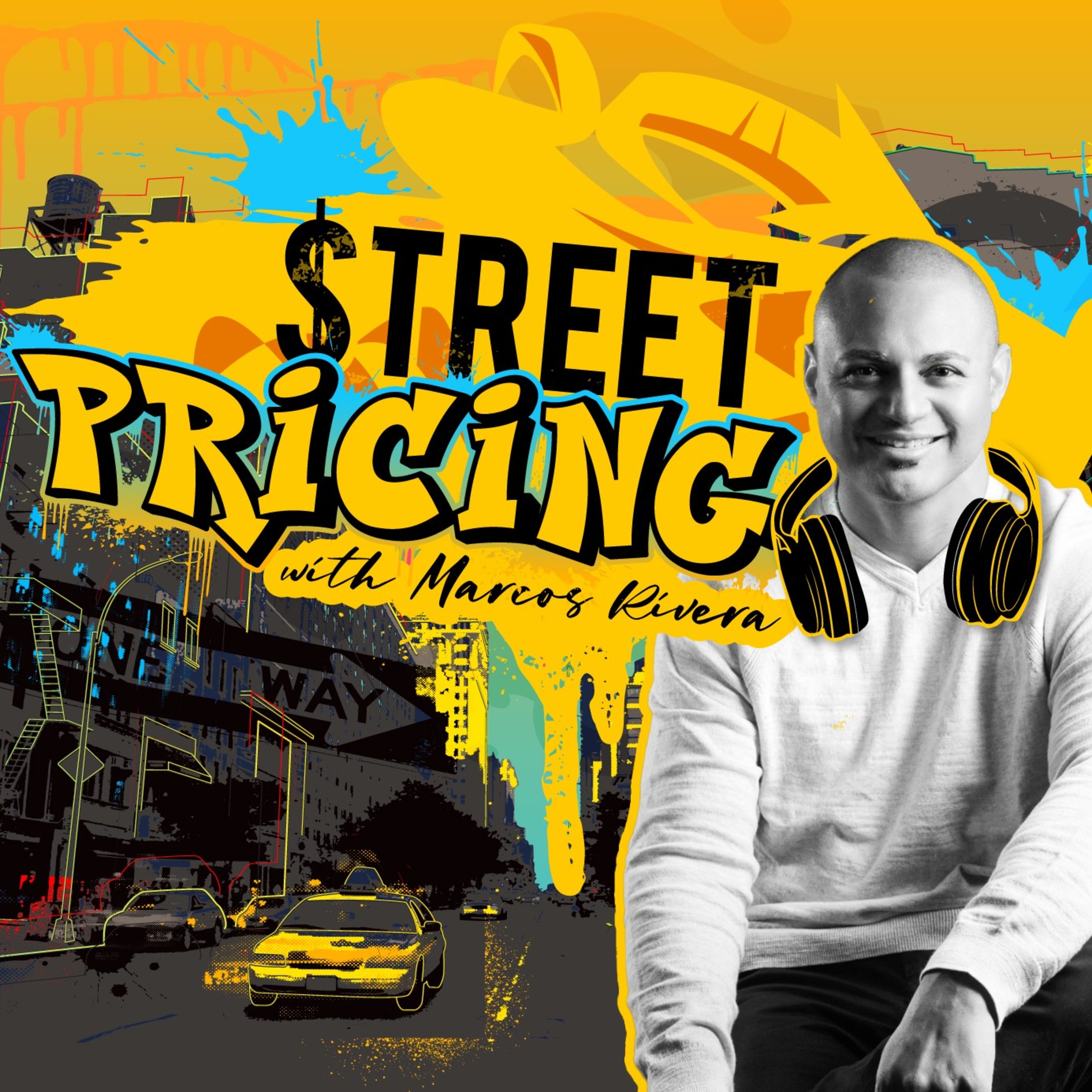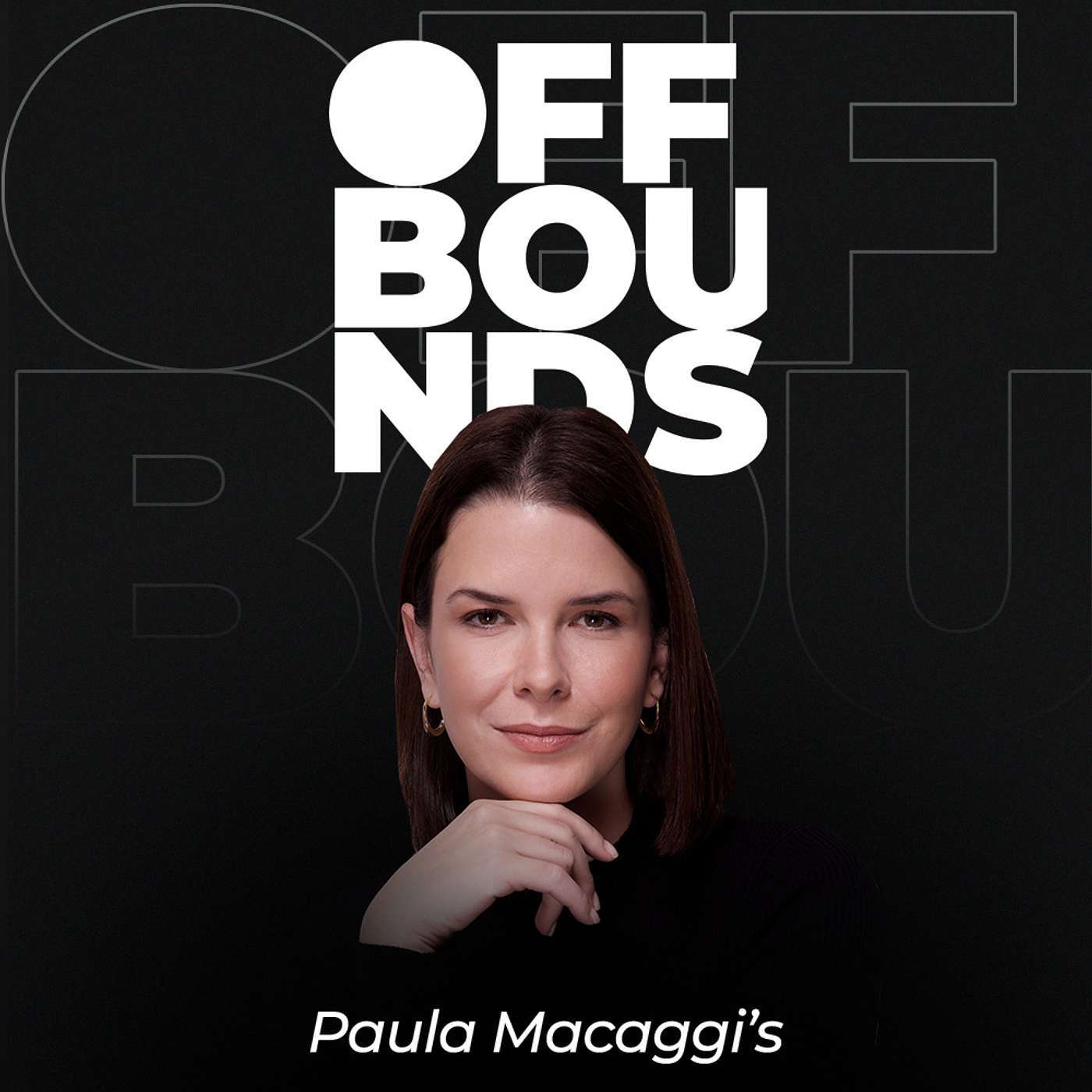
Pricing Heroes: The Retail Pricing Podcast for Practitioners & Executives
Pricing Heroes: The Best Retail Pricing Podcast for Practitioners and Executives
Your go-to pricing podcast for transforming strategy, boosting margins, and leading with confidence.
Pricing Heroes is the leading retail pricing podcast for pricing practitioners and retail executives focused on building smarter strategies, protecting margins, and earning customer trust. Each month, we feature exclusive interviews, case studies, and practical insights to help you implement the most effective pricing strategies for today’s retail environment.
Whether you're managing promotional calendars, navigating price perception, or scaling AI-powered pricing systems, Pricing Heroes offers the expert guidance and real-world perspective you need to lead with confidence.
🎙 Each episode includes:
- Expert Interviews: Candid conversations with top pricing professionals and retail innovators
- Case Study Analysis: Behind-the-scenes strategy breakdowns from across the industry
- Actionable Takeaways: Practical insights you can apply immediately in your organization
We explore the full landscape of pricing in retail — spanning e-commerce and in-store, global brands and regional players, and categories from fashion and grocery to electronics and beyond. Topics include:
- Innovative pricing technologies and emerging trends, like AI-powered pricing platforms
- Data-driven consumer behavior analysis
- Strategic solutions to complex pricing challenges
- Tactics to boost profit margins and market share
- Pricing topics making headline news
- Building and transforming pricing functions
Join a growing community of pricing professionals and industry leaders who tune into Pricing Heroes — the trusted pricing podcast for anyone shaping the future of retail strategy.
🗓 New episodes drop the last week of every month.
📲 Listen on Spotify, Apple Podcasts, Google Podcasts, or your favorite platform.
Sponsored by Competera — the leading pricing platform empowering retailers with AI-driven, customer-centric pricing solutions that maximize profitability while strengthening customer loyalty.
Pricing Heroes: The Retail Pricing Podcast for Practitioners & Executives
Building Pricing Functions: Lessons from Startups to Multinational Brands with Sheetal Chavan
In this episode of Pricing Heroes, we sit down with Sheetal Chavan, the Commercial Pricing Lead at Zalando, one of Germany's largest online retailers selling shoes, fashion, and beauty products. With six years of experience in pricing and a diverse background across various business functions, Sheetal shares her journey into the pricing profession and offers valuable insights for both newcomers and seasoned professionals in the field.
Sheetal recommends several resources for those interested in pricing:
----------
Get your free copy of Get Ready for the Future Of Pricing with our A-Z Guide.
For more information about AI pricing solutions, check out our Corporate sponsor Competera.ai.
Aaron: Hello and welcome to Pricing Heroes, a podcast sponsored by Compara. This is a series of interviews with best-in-class retail pricing experts driving bottom-line metrics for major retail brands and the industry as a whole. Today's guest is Sheetal Chavan.
Sheetal is a commercial pricing lead at Zalando, one of Germany's largest online retailers selling shoes, fashion, and beauty products. She has six years of experience working in pricing. Prior to joining Zalando, Sheetal worked as a pricing manager, strategist, and lead for companies like Movinga and FreeNow. She also has a diverse background across functions, including marketing, business development, product development, and operations. Sheetal, welcome to the show.
Sheetal Chavan: Thank you, Aaron, very much. Thank you for the introduction. I'm very happy to be here.
Aaron: As mentioned in the intro, you have a diverse professional background. Would you mind sharing a little bit about your career journey and how you got into the pricing profession?
Sheetal Chavan: Sure. So as you already mentioned, I have a diverse background. I worked also as an engineer, apart from everything that you mentioned. And then I decided that I wanted to really enhance my business acumen. So I pursued an MBA from IE Business School. While I was doing my MBA at IE Business School, I had a subject called pricing in my last semester, actually.
I truly enjoyed the subject. I was really fascinated by the instructor who was there, but then I quickly forgot about it. When I was looking for new opportunities after MBA, because it gave me a huge international network, I decided to explore some other opportunities apart from what I had already done.
Pricing was not on my mind, to be very honest. One of my alumni friends, who was also mentoring me, introduced me to pricing as a profession. In my mind, pricing was always a part of marketing. I had never heard of pricing as a profession after that. That is when I started exploring pricing and I got into it. So it was not a clearly well-cut, very well-planned decision, but it is how it happened. I guess most pricing professionals come to pricing or get stumbled into pricing.
Aaron: Yeah. So that's definitely a common theme among a lot of the guests we have on this podcast. A lot of them have briefly heard of pricing or they read about pricing in a chapter of a textbook in a business class or marketing class. And then later on, they find themselves in pricing through some opportunity they weren't pursuing directly. So maybe universities need to focus more on developing pricing as a curriculum.
Sheetal Chavan: Or just give one session to the university, I think that's a very good way to just introduce pricing as a profession to many of us who really don't know that pricing as a profession even exists.
Aaron: Do you work with any programs that promote the profession?
Sheetal Chavan: I'm right now in talks with one of the universities in India to really understand how we can have pricing as one of the courses, or maybe if not a course, maybe a small topic where we can start introducing pricing as a profession. So let's see how this goes, but yeah. This is what I'm also trying to explore.
Aaron: How did your previous 10 years of professional experience in other fields of business prepare you for a career in pricing?
Sheetal Chavan: Pricing does not stand on its own. Pricing needs the support of all these functions. For example, let's say if there is no communication of a certain product, even if we have the best pricing, best subscription, or best of the programs, it is as good as the pricing does not exist because there's no marketing, no communication on it.
If we don't know how our product stands against the competitors, then again, however strong the pricing is, it's not going to help. So I think what helped me really with this experience that I had in my past 10 years is to really understand business and to develop business acumen. This also helped me to really understand the perspective of how each and every function comes from.
For example, if marketing is coming with a certain proposal, I'm able to relate to it and not just focus on the price points that I'm setting, but really to understand that perspective also to understand the perspective of the company goals. For example, if the company's goal is revenue generation, or is it profitability or increasing the market share, whatever it is, I think this diverse experience also sensitizes me to understand the priorities of other functions.
I would also really say that before entering into pricing, or even if you are new to pricing and you start your career from pricing, having an experience or talking to as many stakeholders as possible really strengthens your own pricing expertise.
Also, with my past experience, I have realized that stakeholder management is the most important. And with stakeholder management, unless and until you don't understand their perspective, it's really difficult to negotiate with the stakeholders because then you're only putting across your own point and your own KPIs.
So I think working in diverse functions also helps you understand their priorities and then the negotiation is more smooth. I think these are two important things. One is to have good stakeholder management skills and also to understand the perspective of where the other functions are coming from. So this is what really strengthened me to be in pricing and to really have growth in this career.
Aaron: I really liked that answer because essentially what you're saying is that siloed pricing is not an effective approach to any type of pricing function within a business. Communication ultimately is the crucial skill that a professional must have to excel in the pricing field. So I would like to shift a little bit and talk about your practical experience in your very first role as a pricing manager at Movinga. You introduced a new pricing model that resulted in a 10 percent uplift in margins without adversely impacting revenue. And you improved the conversion rate of low-performing categories by 60%. What approach did you take to deliver such strong results?
Sheetal Chavan: When I joined Movinga, at that time it was a startup, and the benefit of working in a startup is that it has a flat hierarchy and it is easy to reach out to people with any questions. So one of the most important things that I did as I joined Movinga was to start talking to people and trying to understand their pain points. So there were two major pain points that I understood, which were really pressing.
One was from the sales team that they were unable to sell moves in a certain segment. So Movinga is a platform for movers and packers. If someone wants to move from Berlin to, let's say, Munich, you just fill in the details and then you can get offers for moves. One of the pain points from sales was that they were not able to sell the high volume, high distance moves.
So this was one pain point from the sales team. And another pain point from the finance team was that they wanted to increase absolute margins. So in percentage margins, they were doing fine, but in absolute margins, they were still struggling.
One of the strongest things about Movinga was the data team. So the data was really well organized and readily available with all the tools set in place. So all pricing was at that time sitting in data, which was a very good thing. And once you have the data, it is easy to understand what is happening.
So what I did, I looked into the data and looked into the conversion of this particular segment and also looked into the margins. After looking at the data, I built some regression models to understand the relationship as to where we are missing our margins in absolute numbers. And I quickly realized that this is in the high moves because on a percentage margin, let's say for example, the margin was around 35%. So the 35% on a 100 euro move and 35% on a 5,000 euro move, in absolute terms, it is quite huge for a 5,000 euro move.
What I did was I created a dynamic margin system, a pricing model, where the margin would dynamically change from, let's say, increasing the margins for smaller moves from 40% to decreasing margins on high volume, high distance moves to around 25%.
So after having this dynamic range of margins, on absolute numbers, we were improving in margins. And this is how I was able to build this model, but building a model is not enough, right? Because you don't know how it is going to function once we roll out. So I created business cases and presented them to the C-level to show what would be the best-case scenario, what would be the scenario when nothing changes, and what would be the worst-case scenario.
After presenting some business models and also during this entire process, I kept the sales team in the loop and also the finance team. So I think managing the stakeholders and then presenting the business case, after it was approved, we decided to try it on a small set of moves to just test it. And after testing and seeing the results, we realized, okay, the absolute margins improved, but also the conversion rate of these high volume and high distance moves also improved. So this is how I was able to really achieve improved conversion rates, achieve high absolute margins, and also improve this underperforming segment.
Aaron: That's really great. And I'm assuming once you tested on the small scope of transactions, you scaled the strategy up.
Sheetal Chavan: Yes, exactly.
Aaron: You said that this was your first role as a pricing manager, but it was at a startup. Would you recommend to others who are early in their professional career to begin at a startup or should they focus on working more with a robust team when someone's thinking about taking that first step into pricing?
Sheetal Chavan: Yeah. Unfortunately, pricing is not one of the main functions in startups. There are very few startups where you would see pricing as a main function. If you start your career in pricing, a startup would be the best place to start because, as I already mentioned, you have flat hierarchies. It's very easy to reach out to people. The organization is smaller. So if you start at this place, it's not just about building pricing expertise, but you also start building business acumen when you work in startups.
So I would highly recommend not just for anyone in the pricing profession, but for anyone who's starting their career to move to just start working in a startup, because it really develops you quite a lot. Unfortunately, pricing is not a function which is very widely set up in startups. If you want to have a career in pricing sets processes up. So you are now developing yourself as pure pricing expertise and not trying to juggle in between the processes. I think it's also a very good idea to start in very established companies where processes are already set up and then move to a startup so you can get the learnings from a big company of how the processes are set up and then apply them in a startup. Because in a startup, there's no fixed process; everything you have to figure out as you go on.
So it really depends also on the temperament of a person, how that person is. If you want to have more of a general plus pricing expertise with processes that are not set and you're fine with it, or you're someone who really wants to focus on pricing expertise and learn through it and then grow in it. Yeah, I would say right now it's fine; you go either way.
Aaron: Basically, it depends on the person's temperament. So if they're self-guided, self-learning, and they have that robust business background, I think obviously that was your strength going into that initial role at the startup because you had a good understanding of how the business operated. And as long as you can learn and apply the pricing strategy, you can make it work. Otherwise, working at a larger enterprise with an established function could certainly benefit others.
Sheetal Chavan: Yeah, absolutely.
Aaron: So at FreeNow, you were the company's first dedicated pricing professional responsible for centralizing and refining operations across eight European markets. Can you tell us what it was like setting up the pricing function?
Sheetal Chavan: Sure. So I was hired as the first pricing professional in FreeNow. I realized that there were no processes set in place. And every local market had the right actually to set their own prices, which was quite a surprise for me because it means that there are no learnings that we are taking from one market and applying to others.
So the first thing I did there was to really start with education, educating the stakeholders on the importance of pricing, then to have someone dedicated for pricing from the data team. And then to understand how the role of pricing is accepted in this company. So with the education, what I did is I tried to be present in all the important meetings to be a voice of pricing for the company.
Then for having a dedicated person for the data team, I hired an intern to be exclusively working for pricing. So unless and until we don't have data, we really don't understand what is the impact of pricing. And unless I don't have that, it would be very difficult to educate the stakeholders on the importance of pricing.
And then lastly, as I had visibility in the business, I had visibility in most of the important meetings, I had an understanding of the impact of pricing with the help of data, I also started something known as monthly reviews to let the stakeholders know how pricing has impacted various KPIs. I think these were the main foundation levers that you could say I had for establishing a pricing function in FreeNow.
Aaron: There must have been some challenges setting up this pricing function simply because even when you introduce changes to an organization, change management is one of the biggest challenges a company faces. Would you mind telling us a little bit about those challenges and how you overcame them?
Sheetal Chavan: Yeah, for sure. I had many challenges doing that. As you said, change is not always nice. It's very uncomfortable. One of the challenges I faced is really acceptance of the pricing function in the company. And it was not because people did not believe in it. It was because we did not have enough data to prove that pricing has an impact on the performance.
Secondly, I already mentioned that pricing was handled by all the local markets. So to really centralize it and bring it to one point and to set up governance was a challenge. Initially, there was some friction in that. And I think this was also a good friction because there were a lot of discussions that happened and that brought us to a point where we realized we needed competitive analysis.
And so we onboarded an external vendor to understand how competition is performing. So after I had this competitive data and an internal data intern who worked dedicatedly for pricing, with the help of this data, I was able to show that we need a centralized system so we can get learnings from what happened in one country to be applied in another country.
I think data really helped me to bring this centrally. What also helped me is that later my manager came from a pricing background from a ride-hailing industry. And with her credibility, it also gave me strength in the pricing team to really centralize and form governance for the pricing team. I was also then able to hire some pricing managers to form the team of pricing managers and pricing analysts.
Aaron: I'm really glad that you mentioned data because at Copaterra, we face very similar challenges when we are working with some of our clients. One of the biggest challenges that we face is organizing the data that companies have that they're not utilizing for pricing, and especially competitive data is always crucial. So it's phenomenal to hear that this was one of the challenges that you faced and were able to overcome by utilizing the data properly to support the business's KPIs.
I'm wondering, you mentioned that you took learnings from one market and applied them in other markets. What insights exactly were you able to extrapolate that were applicable across all others?
Sheetal Chavan: Yeah. I totally agree that consumer behavior really changes, and then you have to make decisions differently. So what I was referring to mostly was the process of making decisions of setting price points. For example, in France, we observed that the prices that the competitors set in around, let's say, airport areas are very different than how the prices were set in France's city center.
It is not the exact consumer behavior that we took, but we realized that in different locations in the city, we had to then refine our model. And also during different times of the day, we realized from the competitive data that the prices did not look the same. So once we had this learning about how the competition performs and we were able to refine the prices in Paris, what I did was then also to introduce competitive pricing in other cities and trying to understand if there was a similar trend when it came to pricing points during the day in different time slots, and also if it was different for different locations in the city center, outside the city, and so on. So these were the learnings actually I took from different markets.
Aaron: I'm wondering what were the most notable wins during your time at FreeNow?
Sheetal Chavan: I think one of the most notable wins was to establish a pricing team and setting up governances. Because this is where I faced the most challenge to bring a centralized way of doing pricing and setting up the governance. And second, I would say my most notable win was forming a pricing squad, which was formed of multiple functions.
So these were my two wins. And the reason why these were the wins is because after this, I was able to streamline the pain points that I had from the local teams and then make sure that we implemented or made changes in pricing points, or maybe there's something that needs to be done in a system. So there was a proper way of communication that was set up. And this also led to refining our search model even further. So these were some of my most notable wins because the decision-making in terms of pricing became much smoother.
Aaron: You mentioned their pricing squad. Can you elaborate a little bit on that?
Sheetal Chavan: Yes. The pricing squad actually consisted of a multi-functional team, you can say. So there were stakeholders from the data science team who were responsible for search pricing. There was a product team who was responsible for making sure that we had all our systems and processes in place. Then it was a pricing team, pricing and data analyst as well.
Sheetal Chavan: So with this team, we met usually every week and we got pain points from the local teams and we brought these pain points into this pricing squad. So these pain points could be related to pricing points, it could be related to performance, why we are not performing, it could be related to the competition taking away share, so whatever pain points that I had in the local teams, I would bring into the pricing squad and then we would further analyze them. We would prioritize based on the importance and urgency, and then we would work on it together to understand where the resources need to be put in.
And then for the next week or whenever the product pricing created their sprints, they could use this as an input to create sprints and to develop the product on their side. And data science could also then prioritize on the tasks. This is how the pricing squad was formed, which was multifunctional. And I think it's very important for pricing to act as a bridge between the technical teams and the non-technical business teams. Because sometimes when the data science team and the product teams are speaking, they're sometimes a little bit far away from the business and there is a gap, and this pricing squad really did the work of bridging this gap and bringing everybody on the same page so that we solve the same problems that the company is facing.
Aaron: So you're now at Zalando, and Zalando noted earlier this year that competition from fast fashion brands like Shein have had an impact on Zalando's revenue and its number of returning customers. How is Zalando using pricing as a lever for maintaining growth as an incumbent in the market?
Sheetal Chavan: Yeah, this is a very good question, actually. So as Shein, it really competes on low price points. And we saw this very early when Shein launched because when any company launches, they had launched with a lot of vouchers, a lot of price cutting, really penetrating into the market. And this is what we see. And I think this is something every market experiences when a new player enters with very aggressive pricing.
So initially, yes, we did experience this. However, we know what Zalando stands for. Zalando stands for quality. And this is not something the players who come with really low points in the market stand for. So we started focusing on the quality and now you're asking me about the pricing levers. So what we earlier had is Zalando Plus, which was a paid subscription to have faster delivery and also to have subscribing to newsletters and so on. So initially Zalando had a Plus program and instead now we have a loyalty program.
So in this loyalty program, it is a point-based program, which has already been launched in Spain and soon will be launching in France and Austria. So this point-based system rewards the loyal customers. So this is also helping us to improve our returning customers. So this is one of the very important plans for Zalando to address the returning customers.
And when it comes to competition, Zalando is very much aware of the moves that the competitors make. However, we are not a company that wants to really fight on low price points because we stand on quality. We stand on this robust membership program now that we have where we want to really reward our customers who keep on coming back. Zalando also wants to be the first point in fashion. And that's what we are aiming for and not picking up on a particular competitor to fight. If it makes sense.
Aaron: Yeah, that makes a lot of sense. And I really like that you're not competing by adopting another brand's go-to-market approach. You're staying true to your identity as a quality brand, and you're finding ways to just strengthen that relationship with the customer. And I think it's a phenomenal approach.
Sheetal Chavan: Absolutely.
Aaron: So I always like to ask our pricing professionals, what tools and technologies do you use to help you develop, implement, and manage optimal pricing strategies?
Sheetal Chavan: With my experience working in Zalando, FreeNow, and also in Movinga, I've realized one of the most important technologies for today is data and being able to do data modeling, being able to make sense out of data. Tools like BI and also SQL or Python where you can do some regressions, I think these are the most important tools I would say for pricing.
And what helps me to really develop and implement and manage optimal pricing strategies is also the competitive data. So there are various tools that are available in the market which show how the competition is performing. There's also market share data. There's also Google Analytics that show the traffic. I think these are some of the tools that one can use to really understand the pricing strategy.
Apart from that, I think every company has their own internal KPIs. These internal KPIs can only be measured if you have a very robust data structure or data foundation already in your company.
Aaron: Clearly data is the key to success, especially now that we're seeing development with artificial intelligence. There is no telling where we will be 10, 20 years from now, as compute becomes more affordable and these AI models become more sophisticated. It's going to be one of the most powerful tools available to pricing professionals.
Sheetal Chavan: Yes. I think this is a very good point because with artificial intelligence right now we are doing it with a lot of content, but with artificial intelligence in data, you just ask a few simple questions based on the past data that you already have in your system as to what would be the preferred actions to be taken or what were the actions taken and what was the result. So I think this is a very strong tool or technology that could be leveraged in the future.
Aaron: Okay. So as we wrap up, what advice can you offer those who are just starting out in their pricing careers?
Sheetal Chavan: Oh, this is a very good question actually. And this is also a very humbling question because I've just been in this function for six years, as you already mentioned. What advice I would give is for whoever's starting in this profession to come with the mindset of learning and learning not just about pricing, but also about the business. Learning of how to communicate better. Also, how to negotiate with the stakeholders.
I think it really develops your personality as a whole. So if you come to pricing, get ready to be challenged from all sides, also getting challenged on your personality. And I think it's a very good thing because the only path that you can take with this is the path of growth. So for anyone who's starting out with their pricing careers, I would just say congratulations and all the best.
Aaron: That's great advice. And final question, what books, podcasts, or other resources can you recommend to our community of pricing professionals?
Sheetal Chavan: Yeah. So one of the podcasts that I can recommend is the one that I'm currently on. Which is a great resource for anyone who is in pricing, not just who is starting pricing, but also for those who have been in pricing for many years. I would say listening to this particular podcast has really rich resources from really highly qualified professionals. So I would highly encourage everyone to go through all the podcasts in here. And I'm not doing this because I'm recording, but really it is a good resource of really great people coming here.
Some of the books are... maybe one really very good book that I would recommend is from Daniel Lozada. And the book is about the 10 Rules of Highly Effective Pricing. So he has given really very concise 10 ways in how one can do effective pricing. One of the most interesting things that I realized in this was about subscription-based pricing. So if there's any model that you're looking for, I'm sure you'll get something out of this book.
Also, the way the book is written is mostly based on stories. So it's not very theoretical, but it's very practical. So I would highly recommend going through this book. He also has written another book, which is known as The Price Model Revolution. It is based on a number of his experiences and stories of how pricing has been done. So these are the books I would recommend in pricing.
Aaron: Thank you so much. Yeah, we like Niel Ozada. He's been on the podcast and I'm hoping to have him on again to discuss his most recent book, The 10 Rules of Highly Effective Pricing.
Sheetal Chavan: I actually have the book and I must say that even if you're not a pricing expert, just read this book because it's so engaging with all the stories and yeah, it's really an interesting book.
Aaron: I agree. Sheetal, thank you for being on the show. It's been a pleasure talking with you today and thanks for sharing your insights with us.
Sheetal Chavan: Thank you very much, Aaron. It was a pleasure to talk. Thank you very much for giving me this opportunity.
Aaron: I hope you enjoyed our conversation with Sheetal Chavan. Be sure to follow and connect with our guests on LinkedIn. For more information about AI pricing solutions, visit Compara.ai. Remember to subscribe to the show on your favorite podcast app to ensure you don't miss future episodes. And please help us spread the word by leaving a five-star review so that others can discover the show.
If you find the insights on this show valuable, I encourage you to check out the retail pricing community on LinkedIn, where you will find a community of pricing experts sharing their expertise and latest trends. Thanks for joining us on this episode of Pricing Heroes. Take care until next time.
Podcasts we love
Check out these other fine podcasts recommended by us, not an algorithm.

Pricing Evolution Podcast
Brendan Hodge
Impact Pricing
Mark Stiving, Ph.D.
Remarkable Retail Podcast
Michael LeBlanc, Steve Dennis
The Modern Retail Podcast
Digiday
Let's Talk Pricing Podcast
The Professional Pricing Society
Street Pricing with Marcos Rivera
Marcos Rivera
Rooted in Retail
Crystal Vilkaitis
The FMCG Guys
Dwyer Partners
Retail Transformation Show with Oliver Banks
Oliver Banks


